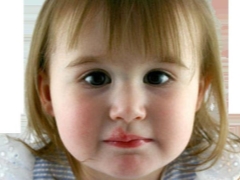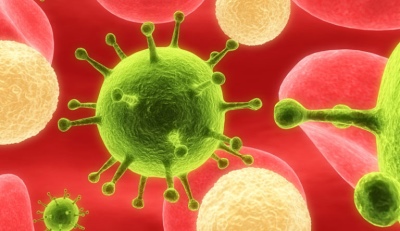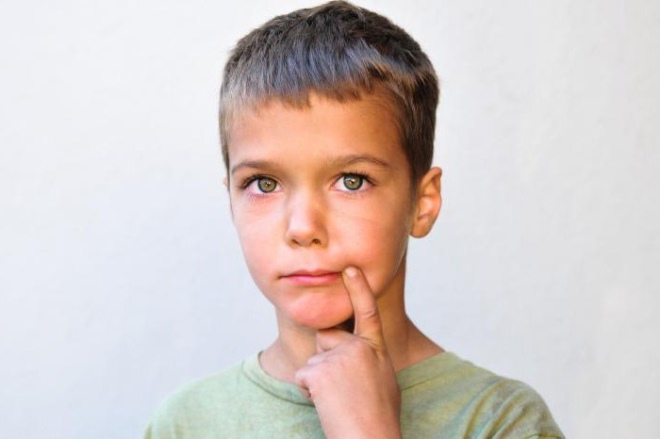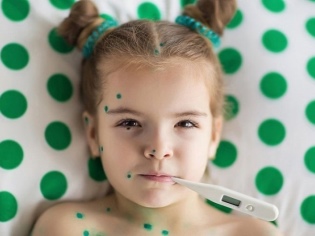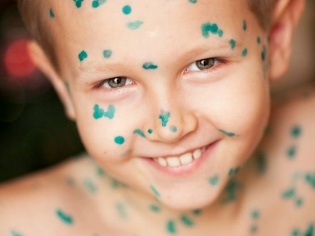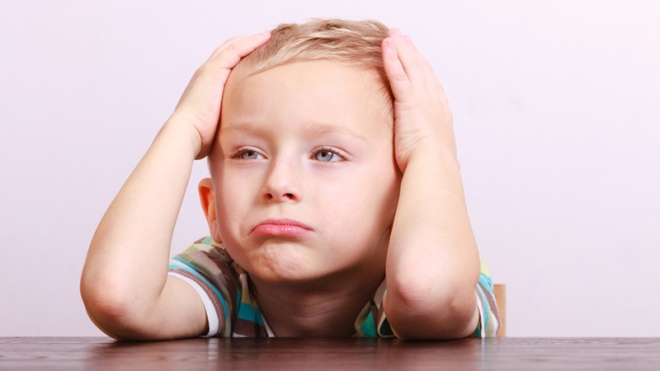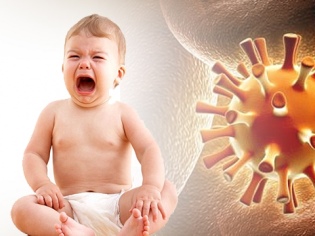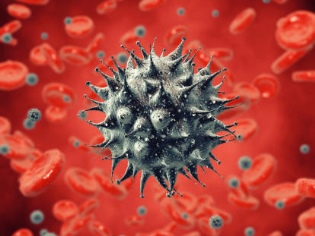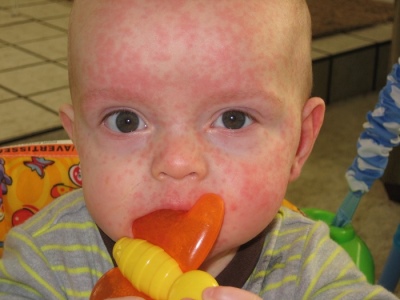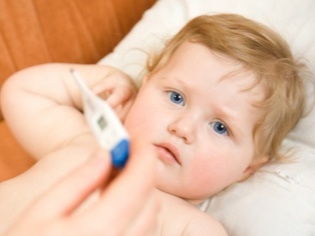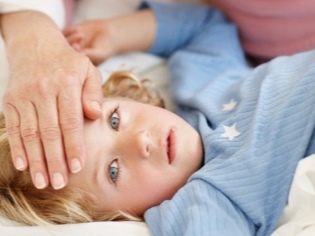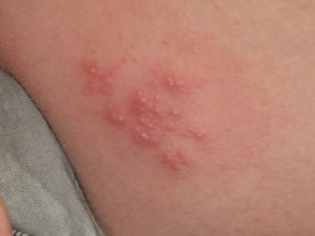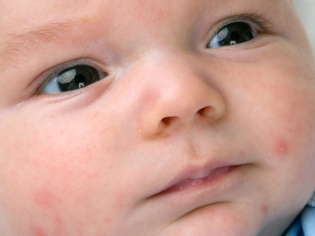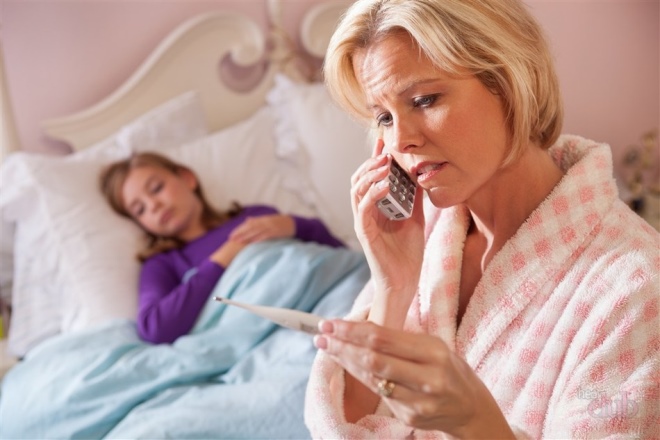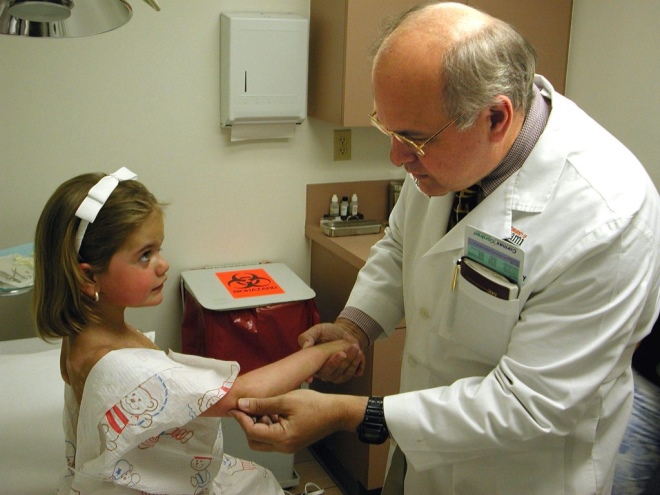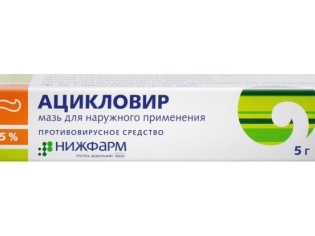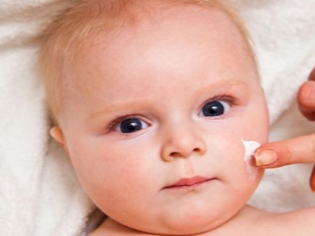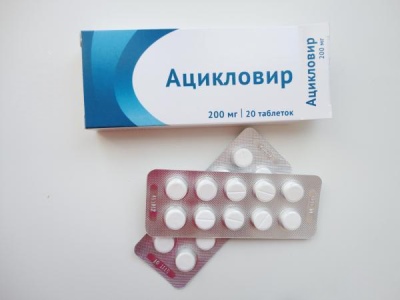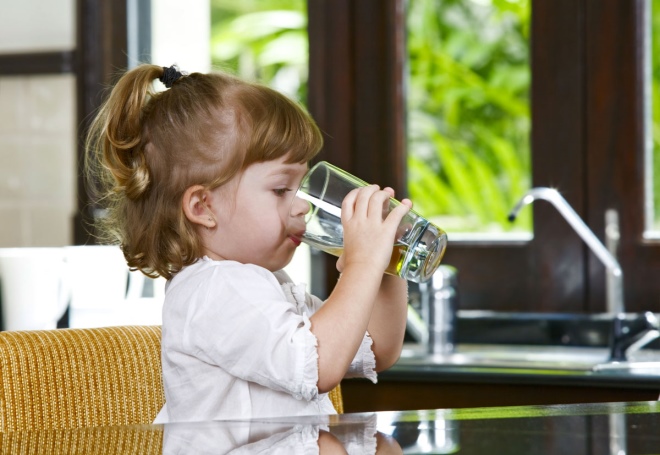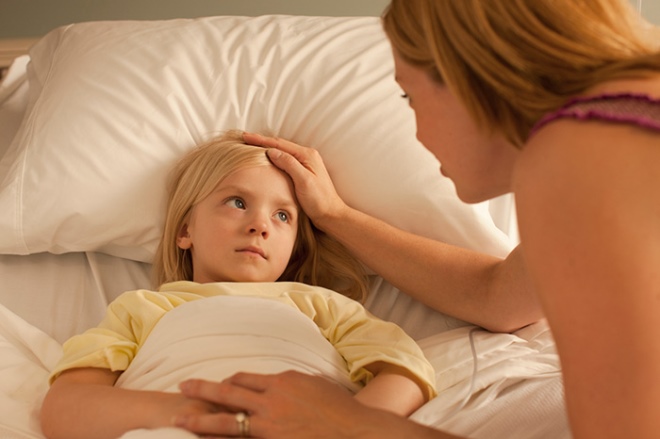Herpes type 6 in children
Speaking of herpes, many parents imagine a classic picture - an unpleasant blistering rash crawls out on the lip or in the nose, it itches and itches. Many believe that she appeared because of hypothermia, colds. In fact, everything is much more complicated. Herpes is a virus. In total, there are 8 herpetic viruses. The most "childish" of them is the herpes type 6 virus in children.
What it is?
Medical science has studied the five herpetic viruses in detail and well, with respect to the rest of the questions there are more questions than answers.
- The first is the herpes simplex virusthat appears as blistering plaques on lips, mucous membranes of the nose, at least - in the mouth and throat. For colds, he has nothing to do. Although the truth is that it is hypothermia that can become a trigger for activating the virus, which previously quietly existed in the body and did not manifest itself.
- The second type of herpes virus - This is a very unpleasant representative of the family, which becomes the cause of genital infection. It is manifested by a small watery rash in the genital area and is quite dangerous for pregnant women.
- Herpetic virus of the third type perfectly familiar to all adults, it causes childhood disease - chicken pox, which is also called “chickenpox” by the people.
- Fourth Herpetic Representative - Epstein-Barr virus, which, if all circumstances favorable to oneself coincide, can cause meningitis, toxic hepatitis A and even oncological tumors.
- The fifth type of virus has a well-defined name - cytomegalovirus. It causes a very specific disease - cytomegaly.
- Herpetic viruses of the sixth, seventh and eighth types not yet sufficiently studied. They have no names yet, they are denoted by the abbreviation VG-6,7,8. Of this mysterious trinity, the sixth virus is the most researched. As for the seventh and eighth - the scientists were able to formulate and describe only the symptoms, and quite approximately.
The seventh type of herpes virus causes chronic fatigue, frequent depressions, swollen lymph nodes and fever, which can hold on for several months without a decrease in apparent causes.
- Eighth herpes affects the cells of the immune system, causing the occurrence of lymphomas, including cancer of the lymphoid tissue.
How does it work?
To understand how VG-6 “works”, you need to understand the principle of the impact of all herpes viruses, it is approximately the same for each type. Once in the human body, such a virus never leaves it. After the acute stage (and most of the diseases caused by these viruses are of an acute and violent nature) there comes a period of calm - the virus exists quietly. Relapse is the result of the influence of certain factors - stress, hypothermia, weakening of the immune system due to another disease.
Herpes viruses have their own DNA, they can come into contact with the immune system of their carrier, and therefore remain with a person for life. These agents are striking not only people, but also animals, as well as birds.
After entering the body, herpetic aggressors insert their own DNA into the affected target cells, forcing them to refuse to perform their duties and begin to ensure the vital activity of the virus itself.
According to the degree of prevalence, aggressiveness, structure of their genome, all herpes viruses are divided into alpha herpes, beta herpes, and gamma herpes.
The sixth type of herpes also has a conditional classification. It is divided into two types - 6A and 6B. Both are distributed in such a way that they are found in the blood of 95% of the population of the planet. 6A is considered a neurovirulent virus that is capable of infecting nerve cells, spreading most often through the bloodstream. As an assumption, scientists have put forward a version that 6A is the root cause of the development of multiple sclerosis, but there is not enough evidence yet.
6B causes a mysterious disease in children, such as a sudden rash, which is also called children's roseola (and which for the type of pathogen has received another name - “the sixth disease”). At risk are children, and the youngest representatives of humanity - kids under 2 years old. Many sick children are between the ages of 9 months and a year.
Danger
In fairness it should be noted that the herpes virus 6A is dangerous only for those who are pathologically reduced immunity. Under this condition should be understood not a runny nose and frequent respiratory viral infections, and serious diseases of the immune system (this, for example, HIV infection). When parents say that a child has weak immunity, in most cases these statements have nothing to do with true immune weakness.
The most common virus is 6B. Many carriers do not even realize that a foreign agent with its own DNA lives in their bodies.
Even if pink roseola once manifests itself, after that, a person’s immunity will suppress the activity of the virus throughout his life, thereby making it possible to no longer get sick with an acute infection.
If we take into account that the majority of the adult population has such a virus in their bodies, then the child usually becomes infected in the very first months of his independent life in this world. Most often, he is infected by his mother. Herpesvirus usually spreads through saliva.
Many pediatricians believe that the sixth herpes type B is not very dangerous. Possible negative consequences can be associated only with those symptoms, which in the acute stage of the disease themselves are dangerous for children under 2 years of age. This is a high fever that can cause convulsions, loss of consciousness, dehydration, disturbances in the activity of the central nervous system.
Quite rarely, herpesvirus of the sixth type causes such complications as meningitis, pneumonia, inflammation of the heart muscle. For most children, the ailment remains unidentified - the pediatrician determines the acute respiratory disease or acute respiratory viral infections, the mother feeds the baby with compote for 3-5 days, and that’s all. And only then, when there will be a need to make a blood test for antibodies, the laboratory technician will detect specific antibodies to the herpes virus of the sixth type.
Symptoms
Usually the incubation period lasts up to a crescent. The active phase of the disease (roseola) begins with a sharp increase in temperature. The thermometer can rise to 39.0-40.0 degrees. There are usually no other symptoms — no runny nose, no cough, no intestinal manifestations are observed. True, the lymph nodes - submandibular, cervical and occipital - may slightly increase.
It is possible to suspect herpes viral infection only after 3-4 days, when the temperature drops. The fact is that after the heat and fever during the day the baby is covered with a pink blister rash. He still has no complaints, the rash does not cause inconvenience and discomfort. It can stay for about a week or a little more, then passes, leaving no scars, scars, marks, without changing the skin pigmentation.
The rash has a size of 3-5 mm (each fragment), often a white edging can be seen around the pimple. The greatest number of rashes in a child is observed on the face, back and abdomen.
Diagnostics
The manifestations of the sixth herpes is quite difficult to recognize even a very good doctor.Usually, the mother calls the doctor at the initial stage of the disease when the baby has a high fever. There is no rash or other characteristic signs of herpetic lesions at this moment and there is no trace; therefore, the doctor most often diagnoses ARVI.
If doctors are invited to the rash, then the first thing he thinks is - rubella. The rash is very reminiscent of rubella. Diagnosis at this stage will be to exclude rubella, for this the baby will take blood for analysis.
Often, roseola is taken for the manifestation of allergies. Having established the first diagnosis (“ARVI”), the doctor will prescribe several syrups, rectal suppositories, and tablets. The definition of a rash as a manifestation of drug allergy will be fully justified, but it cannot be called true.
On the basis of the above reasons, the diagnosis of "roseola" is rarely made in Russian pediatrics, and that the child got sick with it, parents begin to guess much later after reading articles about the sixth herpes (or when the presence of antibodies to 6).
Treatment
The infection caused by the herpes simplex virus of the sixth type does not require special treatment. Many pediatricians are inclined to this point of view, although there are also such representatives of the profession who (even realizing that the baby almost certainly has roseola) prescribe an impressive list of antiviral drugs.
Immediately it should be noted that the majority of antiviral drugs that are sold without prescriptions in any pharmacy, which are widely advertised on television and radio, have nothing to do with the treatment of herpes, however, as well as the treatment of other viral infections. Their effectiveness is not clinically proven.
Usually, the child’s immunity copes with the foreign agent itself, in 3-5 days. Drug manufacturers set these same terms as the duration of the course of treatment.
To pay or not to pay for drugs that do not affect the healing process is up to the parents. However, it is worthwhile to ask the doctor who prescribed antiviral therapy how these drugs will help and whether they will help at all.
Since a herpetic virus is considered lifelong, it cannot be cured. However, it is possible to relieve the child's condition with severe course and severe symptoms. To do this, there are drugs designed specifically for therapy for herpetic ailments. This, for example, "Acyclovir».
Ointment "Acyclovir" can treat the rash, if they give the baby discomfort. Parents may be confused by the age limit in the instructions for use of the drug - children from 3 years. But such a restriction is not established by the manufacturer because the ointment harms children under three. Influence on the body of an infant is poorly studied, experiments on children for ethical reasons were not set.
The ointment can be used with roseola, caused by the sixth herpes, in dosages that will be half the amount stated by the manufacturer. If the child is already one year old, you can give "Acyclovir" tablets, strictly following the dosage and remembering the duration of the course of treatment.
With a very severe form of the disease (which is extremely rare), the child is hospitalized and given intravenous infusions of “Acyclovir” in the in-patient department of the infectious diseases hospital.
Given all the above, it can be noted that The treatment of the manifestations of herpes of the sixth type with the symptoms of less pronounced, expressed in moderate and moderate degree should be carried out according to a reasonable scheme:
- Antipyretic drugs in the first stage of the disease. High temperature (from 38.5) can be reduced with the help of “Paracetamol”, “Ibuprofen” - in the dosage permitted by age. Rubbing with alcohol and cold water is not recommended, since they interfere with heat transfer, can cause vasospasm.
- Antiherpetic drugs in the second stage of the disease. Cream and ointment "Acyclovir» («Zovirax"), Tablets" Acyclovir "for children from a year.Use of the drug "Isoprinosine"Not entirely justified, since it shows some activity only in relation to herpes viruses of types 1-5 (inclusive). Herpes of the sixth type has no effect, the symptoms do not alleviate.
Useful tips
Preventive measures against the sixth herpes virus does not exist, there are no vaccinations against it. This should be realized, but do not need to get depressed.
In the stage of an acute illness of a child, the parents will take note of several useful tips that will help alleviate the child's condition:
- At the initial stage of the disease, which occurs on the background of fever, should provide the kid with abundant drinking regime.to prevent dehydration. Water should be often, little by little, drink should be warm. Very well, if the temperature of the fluid is equal to the temperature of the body - so drinking will be absorbed faster by the body.
The minimum amount of fluid can be calculated simply: the weight of the baby must be multiplied by 30. The resulting number in grams will indicate the physiological need for fluid.
- From the first hours after the temperature rises, the child is contagious to others., it should be isolated from communication with other children. It will be contagious throughout the acute period, and with the appearance of the rash will cease to be a source of infection. He is quite able to walk, chat.
- The baby in the first few days should be calm. It is best to put him to bed, to air the room more often, to ensure that it is not very hot (not more than 20 degrees Celsius).
- It is not always necessary to use antiherpetic drugs., but only when the rash in the second stage of the disease causes inconvenience. The baby combs her, she prevents him from sleeping (this happens if the room is hot enough, the tiny one sweats in a dream). Burning rash with alcohol, antiseptics does not make sense.
- With severe infection (if vomiting is added to a child’s fever), oral rehydration should be used - this is “Regidron"," Humana Electrolyte ","SmectaAnd other drugs.
- Folk remedies treat herpes is not worth it, after all, even pharmaceutical preparations against him are by and large impotent, what can we say about garlic, aloe juice and earwax, which any herpetic eruptions of grandmother so much like to smear on.
- After the disease should be given special attention to strengthening the immunity of the child.After all, a strong immunity will not allow relapse. To do this, you need to ensure that the child's diet is rich in vitamins, trace elements, minerals, so that the baby spends enough time in the fresh air. If you have not done hardening before, it's time to try and make these procedures systematic.
The child must actively move, attend the sports section (as far as possible), spend less time at the computer or in front of the TV. Be sure to do all the prescribed age vaccinations. They do not protect against herpetic infections, but significantly reduce the risks of getting sick with other viral ailments, which greatly undermine the state of the child’s immune protection.
All these measures will allow balancing the "possibilities" of herpes and immunity, and the virus will remain in a "sleeping" state, without in any way interfering with the full and rich life of the child in the future.
Dr. Komarovsky tells about the herpes virus and its varieties in the next video. You can also read more read Dr. Komarovsky’s opinion on herpes type 6 in children in another article.
